Logistique
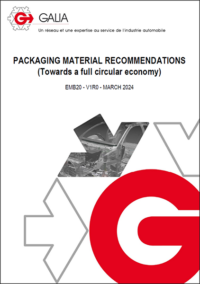
Packaging Material Recommendations (Towards a full circular economy)
Ce document rassemble des recommandations pratiques pour développer et utiliser des emballages durables dans l’industrie automobile, en termes de matériaux utilisés et de performances de recyclage, afin de se conformer aux obligations légales existantes ou futures.
(Disponible en langue anglaise)

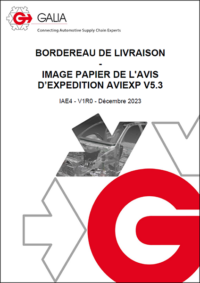
Image papier de l’Avis d’expédition AVIEXP V5.3
Ce standard décrit de façon détaillée le bordereau de livraison (BL) du message Avis d’expédition AVIEXP V5.3.


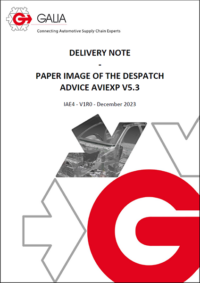
Image papier de l’Avis d’expédition AVIEXP V5.3 (version anglaise)
Ce standard décrit de façon détaillée le bordereau de livraison (BL) du message Avis d’expédition AVIEXP V5.3.


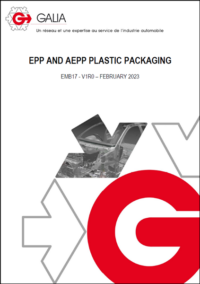
EPP and AEPP Packaging (version anglaise)
Ce document recense les spécifications des emballages en en PPE ou PPEA destinées à l’industrie automobile.


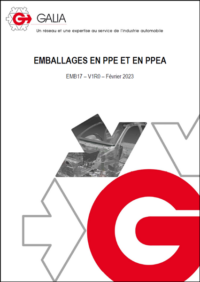
Emballages en PPE et en PPEA
Ce document recense les spécifications des emballages en en PPE ou PPEA destinées à l’industrie automobile.


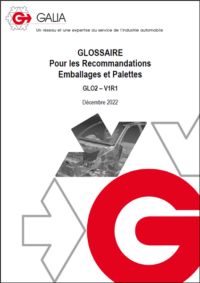
Glossaire pour les recommandations Emballages et Palettes
Ce document liste les termes techniques utilisés dans les recommandations GALIA liées aux emballages et aux palettes.


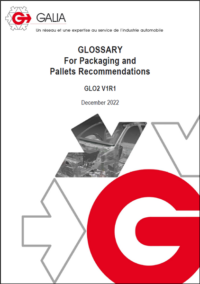
Glossaire pour les recommandations Emballages et Palettes (version anglaise)
Ce document liste les termes techniques utilisés dans les recommandations GALIA liées aux emballages et aux palettes.


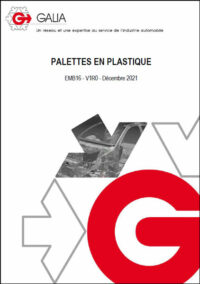
Palettes en plastique
Ce document recense les spécifications des palettes en plastique destinées à l’industrie automobile.


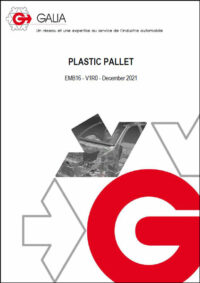
Palette en plastique (version anglaise)
Ce document recense les spécifications des palettes en plastique destinées à l’industrie automobile.


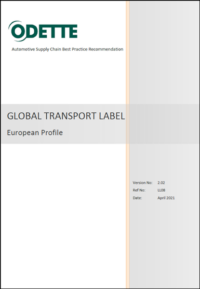
Global Transport Label – European Profile (Version anglaise)
Le présent standard décrit les spécifications des modèles d’étiquettes de transport, dites Global Transport Label (GTL), qui ont été développées entre Odette, l’AIAG et le JAMA-JAPIA, avec la participation de GALIA.

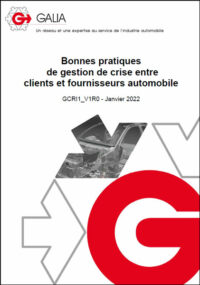
Bonnes pratiques de gestion de crise entre clients et fournisseurs automobile
Ce guide de bonnes pratiques a été élaboré par les membres de GALIA, dans le contexte de la crise du COVID-19, suite aux retours d’expérience des entreprises sur la gestion de crise notamment en matière de communication clients-fournisseurs et de mise à jour des systèmes d’information et des EDI.

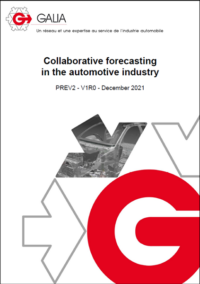
Collaborative forecasting in the automotive industry
Cette recommandation propose une description détaillée des différents process utilisés dans le domaine de la prévision/programmation des constructeurs et des équipementiers de l’automobile.

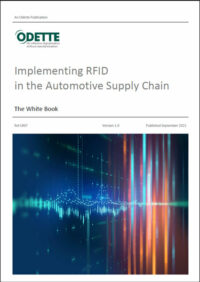
Implementing RFID in the Automotive Supply Chain – White Book
Odette et les associations nationales (GALIA, VDA, Odette Sweden, SMMT) ont réuni un groupe de travail d’experts RFID pour partager les bonnes pratiques et aller plus loin dans la définition des standards processus et techniques à mettre en œuvre dans les flux logistiques de l’automobile.

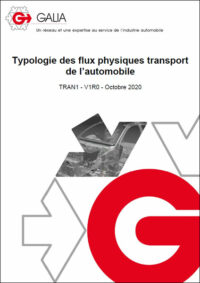
Typologie des flux physiques transport de l’automobile
Ce document présente un recensement de typologies de schéma de transport mis en œuvre dans l’industrie automobile. Il s’agit d’une mise à plat des différents flux physiques en décrivant leurs caractéristiques principales, les ruptures de flux (étapes) et le partage des responsabilités entre fournisseur et client.

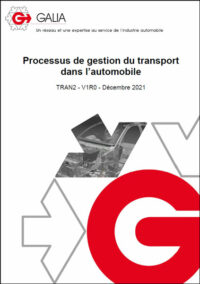
Processus de gestion du transport dans l’automobile
Ce document décrit le processus de gestion du transport (Transport Management) dans le contexte de l’automobile. Il décrit les grandes fonctions qui le compose, les échanges entre ces différentes fonctions, les systèmes d’informations employés et le rôle des acteurs impliqués.

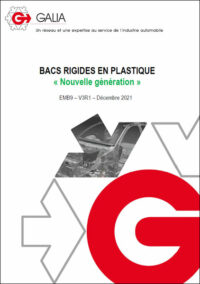
Bacs rigides en plastique « Nouvelle génération »
Ce standard décrit les spécifications de fabrication et d’essais de la gamme des bacs en plastique à parois rigides, composée de 5 bacs modulaires et d’un bac long.


